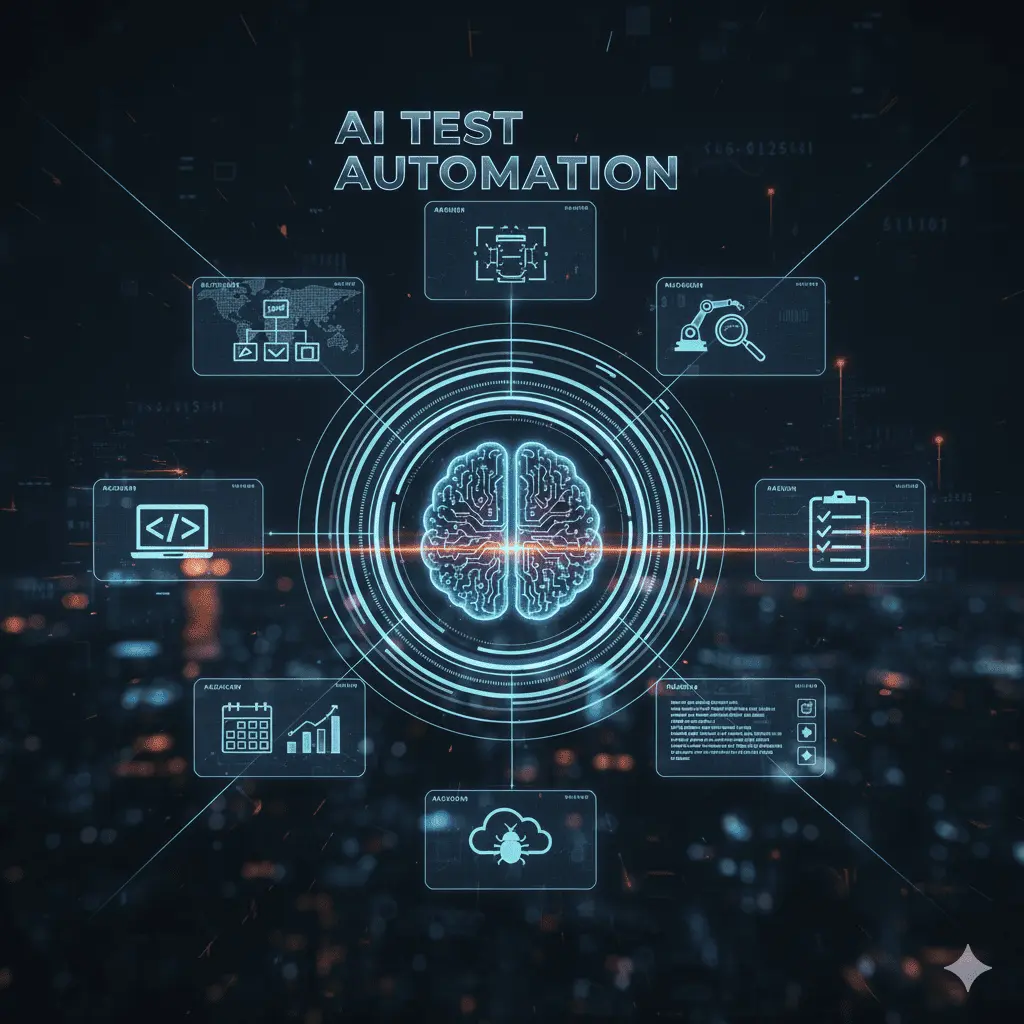Introduction
In today’s rapidly evolving digital ecosystem, businesses are under increasing pressure to deliver software that’s not only fast but also flawless. Enter AI Test Automation — a transformative approach that leverages artificial intelligence (AI) to enhance quality assurance processes. By combining human expertise with machine learning precision, companies can accelerate their testing cycles, reduce manual errors, and achieve consistent results.
Whether you’re new to AI automation for beginners or an experienced QA engineer seeking optimization, understanding how AI-driven testing works is crucial. From AI workflow automation to AI business process automation, the integration of smart algorithms ensures efficiency across every phase of development — leading to faster releases and better customer experiences.
Materials & Tools
To start with AI Test Automation, you’ll need a strategic combination of software tools, datasets, and frameworks designed for intelligent testing. The essentials include:
-
AI-Powered Test Platforms: Tools like Testim, Mabl, or Applitools use machine learning to create adaptive test scripts that evolve as your app changes.
-
Data Management Systems: For training AI models, clean and labeled data is key. Use platforms like TensorFlow, PyTorch, or Selenium Grid for automation datasets.
-
Integration Tools: Link your AI testing workflows to CI/CD pipelines such as Jenkins, GitHub Actions, or Azure DevOps for continuous testing.
-
Reporting Dashboards: Tools like Allure, TestRail, or Katalon Analytics help visualize performance metrics and error trends.
Each tool serves a purpose — together they form a robust ecosystem for AI and automation success.
Timing / Implementation Schedule
Implementing AI Test Automation isn’t instantaneous; it’s a progressive journey. A typical implementation schedule includes:
-
Week 1–2: Identify testing goals, existing pain points, and automation potential.
-
Week 3–4: Select and configure AI automation tools.
-
Week 5–6: Begin pilot testing with selected test cases to train AI models.
-
Week 7–8: Integrate automation with development pipelines and scale test coverage.
-
Month 3 onward: Optimize models based on test outcomes and business feedback.
Consistency and iteration are vital — AI systems improve over time as they learn from patterns and errors.
Preparation: Define Goals, Audience, and Content Strategy
Before deploying AI Test Automation, define what success looks like.
-
Goals: Is your focus speed, accuracy, or cost reduction?
-
Audience: Identify who benefits — QA teams, developers, or management.
-
Strategy: Determine where AI business process automation aligns with your company’s digital strategy.
Creating a content and communication plan around your automation roadmap helps gain stakeholder support and ensures alignment across departments.
Step-by-Step Instructions
-
Analyze Existing Test Suites: Identify repetitive, time-consuming, or error-prone tests suitable for automation.
-
Select the Right Tools: Choose a platform that integrates well with your current tech stack.
-
Train AI Models: Feed test data into machine learning models so they learn from past outcomes.
-
Execute Smart Tests: Run automated tests that can adapt dynamically to UI or data changes.
-
Monitor & Optimize: Use dashboards to track accuracy, coverage, and test performance over time.
By following these steps, AI Test Automation enables continuous delivery and high-quality software without constant human supervision.
Advantages
The advantages of AI Test Automation are far-reaching:
-
Speed: AI shortens testing cycles through predictive test selection.
-
Accuracy: Machine learning eliminates human error in repetitive tests.
-
Cost Efficiency: Fewer manual tests mean reduced QA costs.
-
Scalability: Automation supports agile environments with rapid code updates.
-
Integration: When combined with AI Marketing Automation and AI Workflow Automation, organizations achieve a synchronized ecosystem across departments.
These benefits collectively push digital transformation to new heights.
Tips, Alternatives
When exploring automation solutions, consider these expert tips:
-
Start small — automate critical modules first before expanding.
-
Use open-source options before investing in premium tools.
-
Continuously retrain your AI models with updated data.
If you’re searching for the best tool for AI automation, evaluate platforms like UiPath, Testim, and Automation Anywhere. These tools integrate with testing, marketing, and business operations — making them ideal for companies pursuing end-to-end digital automation.
Common Mistakes to Avoid
-
Skipping the Training Phase: AI needs time and data to learn effectively.
-
Over-Automating: Not all tests require automation; balance is key.
-
Ignoring Human Oversight: AI enhances testers, not replaces them.
-
Lack of Continuous Evaluation: Neglecting performance analytics leads to stagnation.
Avoiding these pitfalls ensures long-term success and adaptability in your QA strategy.
Conclusion
AI Test Automation is revolutionizing the world of software quality assurance. By merging artificial intelligence with agile methodologies, businesses can move faster while maintaining exceptional product reliability. The future lies in intelligent, data-driven testing — where automation doesn’t just execute, it learns, adapts, and predicts.
Adopting AI-driven QA today isn’t just a trend — it’s a competitive advantage that empowers teams to deliver excellence with every release.
FAQs
1. What is AI Test Automation?
It’s the use of AI and machine learning to enhance and optimize software testing processes, reducing manual effort.
2. How does it differ from traditional automation?
Unlike static scripts, AI automation adapts to changes, predicting failures and learning from outcomes.
3. What industries use AI Test Automation?
It’s widely used in finance, e-commerce, healthcare, and SaaS for faster, smarter quality control.
4. What is the best tool for AI automation?
Top choices include UiPath, Testim, and Automation Anywhere — known for flexibility and intelligent insights.
5. Can AI Test Automation integrate with AI Marketing Automation?
Yes — integrating both allows unified performance tracking across testing, marketing, and business workflows.
